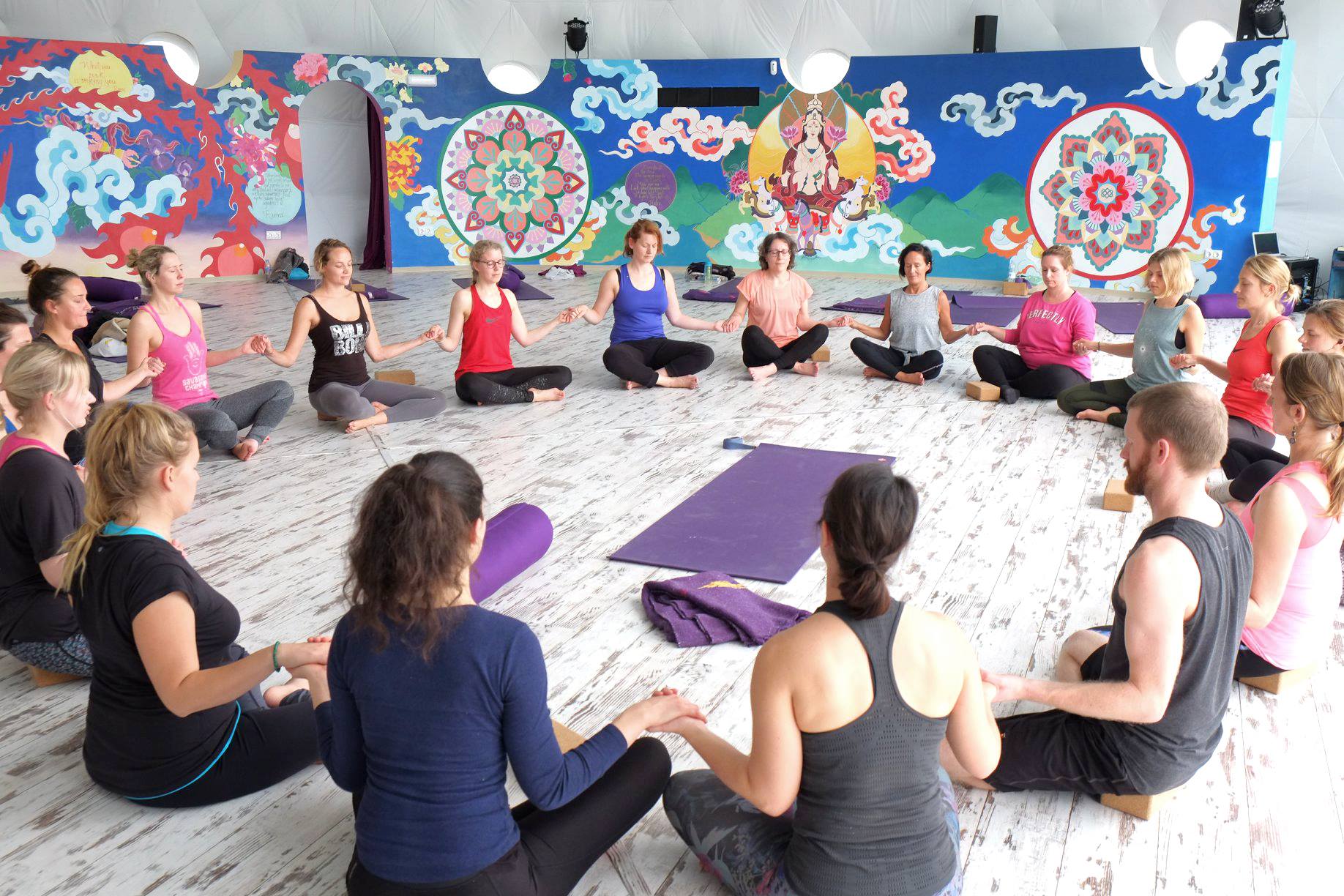Big Questions to Consider
Before you announce to the world you are going to run a retreat, it is really a good idea to ask yourself a few important questions.
Why are YOU planning to run a retreat?
This may seem obvious, but I can assure you it isn’t necessarily, and the answer to this question will shape almost everything you do next.
The range of answers is surprisingly diverse. Some teachers run retreats because they want to go on holiday and it looks like a good way to get others to pay for it. Some teachers and especially yoga businesses are doing it to primarily make money; others are just doing it for fun. Some teachers have a traditional approach and want to spend some time with their students away from the ‘the world’ to deepen their practice etc. Often, it is a combination of these and other motivations.
What the motivation is or motivations are isn’t so important – but being crystal clear about it from the start is. Because knowing why you are doing what you are doing will help you make many of the crucial decisions along the way.
Insider Info: A common problem I’ve seen happens when a teacher mixes up their own personal wish to go on a retreat with the desire to run one. When the teacher realises how much work is involved in the latter, he or she often gets disillusioned and cancels the retreat, often times losing their deposit and letting students and centres down in the process.
Are you ready to run a retreat, and do you know what you are getting into?
It’s a good idea if you haven’t run a retreat before to ask someone or a few people who have how it works and what to look out for. Ask them what lessons they have learned. It is true that it has become very popular to lead yoga retreats and there are more and more teachers, businesses and studios running them…
But it is also true that a great many of these retreats are not as well attended as the organisers initially expect them to be. In fact, I would say that this is true for more than 60% of the retreats we hosted at our retreat centre in the last 18 months.
Be under no illusion – the retreat business is a business. It is competitive and your students have literally thousands of options when it comes to the time to decide what they do for their holidays. Convincing your client that the best choice they can possibly make is to come on your retreat – rather than going on another retreat, or going hiking, kayaking, skiing, on a spirit quest or whatever– may take some doing. For obvious reasons, it’s usually more difficult to convince someone to come on your retreat than it is to get a client to come to a class, or sign up for a month’s classes.
I also think it’s also important to ask yourself if you really have enough experience and knowledge to lead a retreat well. Have you developed sufficiently as a teacher to take responsibility for your students’ wellbeing for a week? Leading a retreat is different from teaching a class and you will need a wider set of skills and resources to draw on if you are to successfully manage the retreat and meet at least some of your guest’s expectations. It takes a certain amount of maturity (which is not necessarily age-related) and selflessness (which is definitely not age-related) to lead a retreat really well.
I have often encouraged newer teachers to team up with another teacher for their first retreat. This doubles the number of students who may come and means the teachers can work together and support each other marketing, selling and delivering the retreat. Just make sure all the terms of your partnership are agreed up front – especially the financial details! Partnerships can be a great support mechanism, but they can backfire if they aren’t clearly defined.
Insider Info: Probably the most common mistake I see being made in this area is the illusion that a yoga business is different from other businesses – and because you are bringing something good into the world, the world will look after you. This may be true on some cosmic level – but I haven’t seen any proof of it on the ground.
Basically the same laws of commerce apply just as reliably in the yoga world as in any other business. Sadly, it just doesn’t seem to be enough to be really enthusiastic and excited about what you are doing even if you have every right to be. The best advice here I can offer is – it is OK to have your head in the clouds – as long as both of your feet are firmly planted on the ground.














